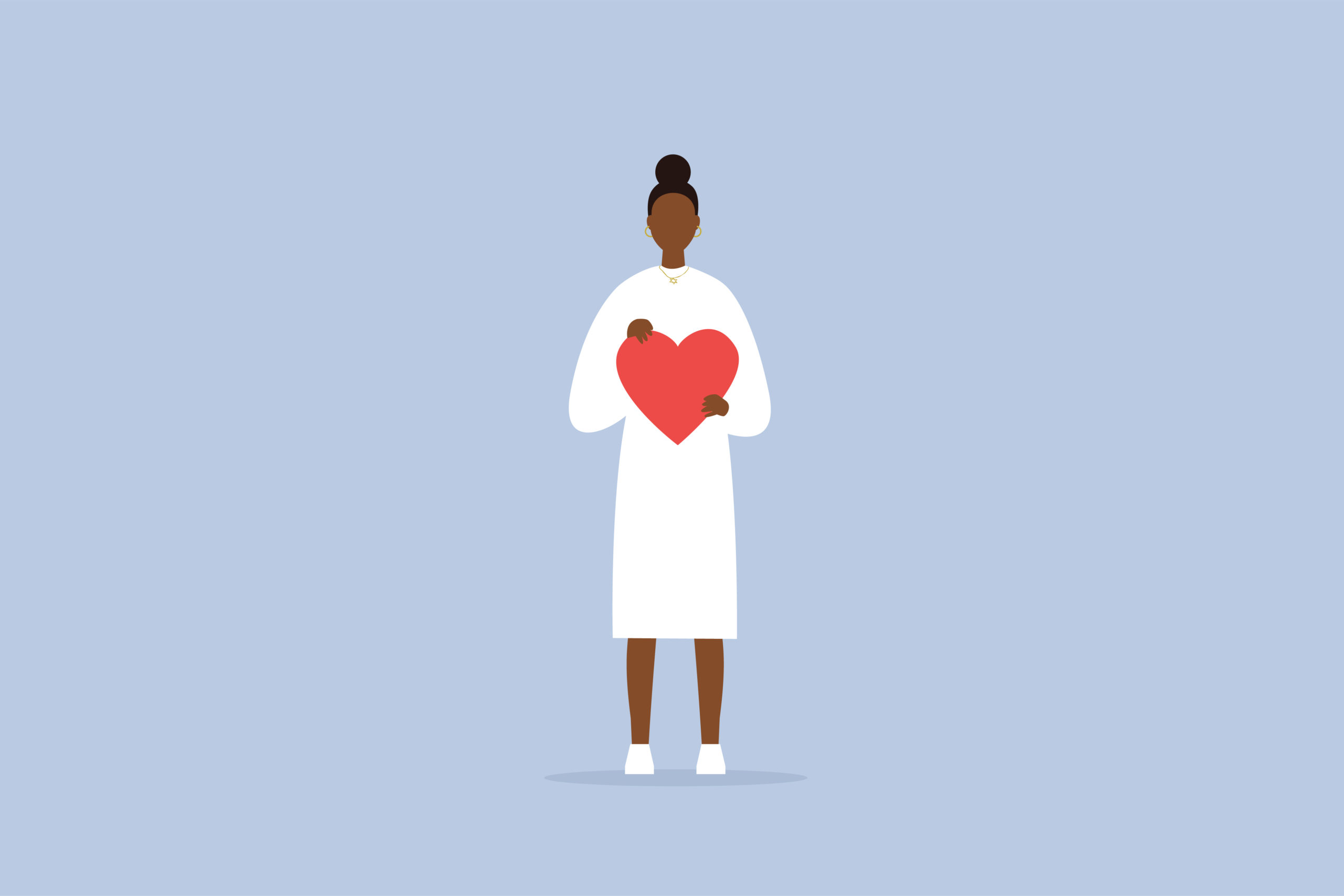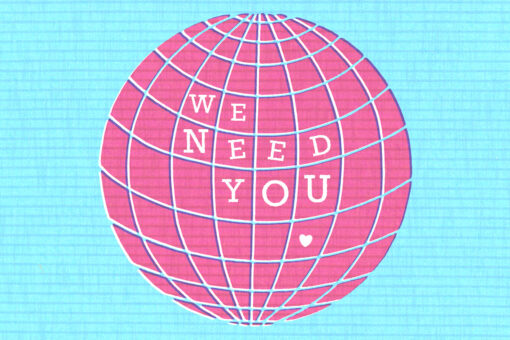On April 7, 2016, I stepped out of the mikveh as Ahava Malka. It was the day I had been waiting for, after four and a half years of studying, researching, and immersing myself in preparation for a Jewish life. On that day, at age 37, while songs of praise came from the rabbis of my beit din, I became a Jew.
As I walked down that hall past the rabbis, filled with all the happy tears one could imagine, I started to think about how now I got to continue this journey by getting further involved in my synagogue, celebrating Shabbat with friends, having a supportive community, and also finding a partner to grow with in Jewish life.
Fast forward to 2020, where my Shabbats are spent every so often with friends but also many times alone, and I still don’t have a Jewish partner. I even needed to take a break from my synagogue because I found myself feeling more and more detached. Outside of services, I started to feel like I had less and less in common with my community. My single friends were getting married, and the young couples grew more and more unavailable as they started to expand their families. And, to be frank, I was tired of new members looking at me quizzically, as if I were lost or didn’t belong.
But what hurt the most was how it seemed that, as a 45-year-old Jewish woman of color who converted to Conservative Judaism, I am apparently not good enough to be considered a mate for most observant Jewish men.
There were no dating prospects, matches online, or shidduch (traditional Jewish matchmaking) intentions for me. I often wondered why, though sometimes the answers came directly to me. From some Orthodox men, I was told, “You’re really pretty and look good on paper, but I don’t consider your conversion valid so I could never consider you as an option for a mate.” Conservative and Reform men seemed to be freaked out by me, questioning how I knew so much about Jewish tradition or why I would choose to be a member of the tribe. It felt like they saw me more as an intriguing museum exhibit than an actual Jewish woman they’d like to date.
And then there was the time I joined a dating site for observant Jewish singles looking to be matched. The creator of that site called to tell me that, honestly, he didn’t see there being any matches for me due to my skin color, but would keep me on the site for free for a year as consolation. As racist and awful as that was, the sad part is he was right: No one was interested, a crushing experience to have when you just want to share so much of what you worked for with someone else.
At this point, dating for me is an unnerving experience. I’ve long felt like men see me as the coolest, funniest pal to have around — or someone to have sex with, to finally have that “Black girl experience” — but not as a legitimate romantic prospect. If they’re Jewish, they think I’m not Jewish enough. If they’re secular, they tend to make me feel like a villain, wondering why I’d choose to be religious when I already have “enough struggles” as a woman of color. I honestly can’t remember the last time I went on an actual date, and even thinking about it now leaves me with a feeling akin to PTSD.
In all my work leading up to my conversion to Judaism, I never thought that my age or skin color would deny me the joy of lighting Hanukkah candles with a significant other, or learning to build a sukkah together, but it has. I was mildly hopeful that one day, I would bless my child on Shabbat, but after so much rejection, I don’t think that’s something that will ever happen for me.
I continue to embrace my Jewish life because I’m so grateful for all the blessings and incredible people it’s brought me. But there’s a lingering sadness remaining that I’ll always be the single friend at any High Holiday celebration.
Still, it’s easier on my heart to focus on the things I can change as opposed to the ones I cannot. I can’t make Jewish men embrace my ethnicity or see my conversion as valid, but I can keep saying blessings when I wake up in the morning, when I light candles on Friday nights, when I’m fulfilling my goal of living a life where doing mitzvot is a regular practice.
There is sadness in all joyous journeys, and this is some of that sadness for me. I don’t know what the future holds, and I don’t know when (or if) I’ll insert myself into the Jewish dating world again. But I’ve learned and grown tremendously into what I believe is quite the dynamic Jewish woman.
Maybe one day a Jewish man will see that and want to approach me with the hopes of partnership, but if not, still I rise.
Header image design by Grace Yagel. Base illustration by nadia_bormotova/Getty images.



